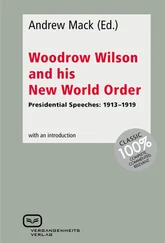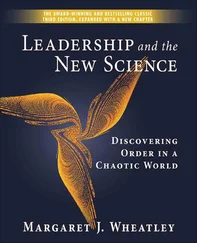In the light of the foregoing, in the following sections we will study the civilisational differences of various cultures to determine their common and divergent points. Only after such analysis will it be possible to work out the preferable economic principles for people living across the globe to fully reflect their expectations and cultures, while conforming to the laws of the Universe.
1.1.2. Differences between western and eastern cultures and their influence on the economic structure
Oh, East is East, and West is West, and never the twain shall meet. 12 12 Cit. ex E. C. Stedman, ed., A Victorian Anthology , 1837—1895 (Cambridge: Riverside Press, 1895).
R. Kipling
Let us proceed with the study of the profound differences that exist between civilisations. The theory of hierarchy of civilisations that presupposes the supremacy of some civilisations and the backwardness of the others is by far disputable. In reality, as Honoré de Balzac wrote, “ Things that we admire in Europe are punishable in Asia, and a vice in Paris becomes a necessity when you have passed the Azores. There are no such things as hard-and-fast rules; there are only conventions adapted to the climate ’ 13 13 Cit. ex H. de Balzac, Gobseck (Clap Publishing, LLC., 2017), 14.
.
At the same time, significant differences in the lifestyle of peoples cannot fail to influence their economic organisation. Indeed, the overall purpose of economy is to provide people with the means of existence. This objective serves as an incentive as well as a source of well-being for nations. No nation or people could survive if they did not employ their entire life potential, including natural, intellectual, and cultural potential. Otherwise they would not be able to make the best of their advantages and curb their weaknesses, would not aspire for economic structure that conforms most with their mentality. And, consequently, people would fail to preserve their specific mentality. It is well known that a good gambler does not always win at chess. In this light, as Joseph E. Stiglitz believed “ Each country should have its own economic policy based on the specific characteristics of this country; there can be no common, universal policy for all reforming countries ’ 14 14 [ Translator’s note: Translated by me.]
[16].
In order to prove this affirmation, we shall consider the fundamental differences of such distinct cultures as eastern and western cultures. Their most conspicuous representatives are the European and the Indian cultures, respectively. This does not mean that other civilisations, such as Chinese, Japanese, Jewish, Slavic, or else Arab civilisations are of less importance. However, it is the cultures of India and Europe that provide an example of a most striking contrast. What are their fundamental differences?
European culture is relatively young. It was shaped by the rationality of Rome reinforced by the Greek Romanticism. Indeed, “… take Rome out – and the entire European edifice will collapse ’ (Valentin Ivanov). If we analyse the map of the Roman oikumene at the beginning of the first millennium AD, including the territories of the Germanic tribes that the Roman Empire fought against, it is evident that the oikumene reunites precisely the states that make part of the modern Western Europe. All the tribes inhabiting this territory were inevitably and profoundly influenced by the sophisticated culture, language, order, and the very image of the rigorous Roman mind. The successors of the Empire naturally inherited its organisation, its harmony, rationality, democracy and inherent homogeneity.
But at the same time, they inherited the egotism, cynicism, cruelty, arrogance and pragmatism of Rome of those days, which in the end brought the Empire to ruin. For it was in the depths of Rome that the pagan cults of violence, hedonism, thirst for luxury, and permissiveness flourished. It was there that double standards, the modern plague of the western society, appeared. Within that system, everything that benefited Rome was considered good, while evil was all that ran counter to its interests. Then, the notions of truth, conscience and justice were employed as needed, often, as an excuse.
The Indian civilisation is more ancient. It is based on occult learning, manuscripts and cultural monuments that the legend attributes to the ancient Aryan civilisation. That is why all notions of this culture have already been tested by the time, and they tend to be more profound and precise. For this reason, as Carl Gustav Jung [17], a recognized expert in the western and eastern cultures, said, not only the lifestyles, but also the types of mentality of the western and the eastern societies are remarkably different.
Indeed, in the West, thinking, intelligence and logic are deemed the best tools for discovering the truth. As the result, the western mentality has become rigid, it does not tolerate deviations and unjustified assumptions. Besides, the area of rational use of mind has been significantly restricted in the West. While people there trust exact observations and logic, they also shun the unconscious and its dubious fantasies. The East has different demands. While the European mind can only process what is visible and tangible, the eastern mind strives to discover the nature and the essence of things. Consequently, a European sees the World around as a system of hierarchies, and an Indian – as a whole. Knowing the way to control the supreme power inside a person is the highest good for an Indian; a European only values what his eye sees.
To illustrate this idea, it can be mentioned that the a maiore ad minus 15 15 [ Translator’s note: In the original, Maori ad minus , incorrect.]
(Latin for “from the bigger to the smaller’) principle is seen in the East as the key tool for learning about the reality. All inferences are drawn from the general principles. In the West, the road towards the truth takes the opposite direction: from the simple to the more complex. Western thinkers believe that the process of learning about the world can only be consecutive, it advances as new data is collected and processed; eastern thinkers discover the world through studying and elaborating the way the general Laws of the Universe are manifested. That is why it is these laws that the western philosophers usually study.
The above explains why a western person takes a detached view of the World, striving to distance themselves from it, to acquire an absolute personal freedom, and an Indian, on the contrary, tries to merge with the World. Therefore, a western person draws conclusions regarding their inner world based on external sensations, while an Indian person is guided by their internal meditations.
Consequently, western mind has a wide knowledge of the Nature, and knows very little about it essence. Europeans always try to make use of things instead of understanding them. They see the reality as something that works, that is connected with the world of phenomena, while for an Indian only the soul, the spirit is real.
Science, with its tendency for systematisation, for logic and consistency, is undoubtedly an invention of the western world. Science conforms with its capacity for logical thinking and reality management. However, about 80% of the scientific knowledge considered evident is proved wrong every 100 years. Although the physical world view as presented by modern science is logically rigorous and justified, it allows no space for life. So, this theory will suffer no changes if the humans disappear from the Universe. Now what is the real value of science if the only being it was created for is excluded from its structure?
Читать дальше












